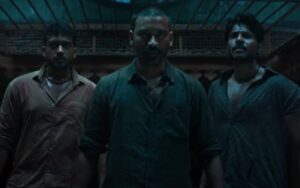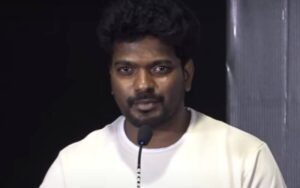Review: A Man Called Otto
The film, in its own unhurried and charming way, trashes the venomous theory propounded by feminists that aggression by men and their demand for discipline and logic are basically harmful to society.

Film: A Man called Otto
Director: Marc Forster
Cast: Tom Hanks, Rachel Keller and Mariana Trevino among others
Music Director: Thomas Newman
Cinematographer: Matthias Koenigswieser
Editor: Matt Chesse
Rating: 3.5 stars
Runtime: 125 minutes
Director Marc Forster, who is best known for having delivered critically acclaimed films like ‘Finding Neverland’, ‘The Kite Runner’ and the ‘Quantum of Solace’, comes up with a brilliant, heart-touching drama in ‘A Man called Otto’.
The film, which is based on the novel, ‘A Man Called Ove’ by Fredrick Backman, is the second film adaptation of the novel. The first was a Swedish film that was made with the same title as that of the book in 2015.
The story begins with Otto Anderson (Tom Hanks), a strict disciplinarian and perfectionist, finding it hard to come to terms with changing times that is fast turning the world into a place full of indisciplined people.
Having lost the love of his life Sonya (Rachel Keller) to cancer a while ago, Otto, who has been forced into his retirement at work, has nothing to look forward to in life and is on the verge of committing suicide.
It is at this point that Marisol (Mariana Trevino), a warm, gregarious woman who is originally from Mexico, moves in as Otto’s new neighbour along with her husband and two young daughters.
The short-tempered but helpful Otto is unable to stop himself from lending a helping hand to the often inquisitive Marisol, who is just days away from delivering her third child.
Initially, Otto grumbles and cribs about people coming to him with requests for help but over a period of time, the warmth and affection of those around him brings about a transformation in him that makes him give up the idea of committing suicide…
Tom Hanks, who has a penchant for delivering top notch performances, comes up with yet another brilliant performance as Otto.
The man simply transforms himself into the character he plays on screen that you only see the grumpy old Otto from start to finish.
Mariana Trevino as Marisol is equally good. Her large expressive eyes, which she uses to good effect to evoke the sympathy of Otto and her strong Spanish accent give her character a definitive edge.
Be it concern, kindness, anger or frustration, Mariana is spot on!
‘A Man called Otto’ is special. No, it does not have breathtaking action sequences nor does it fall at the feet of women and hail them as the superior sex like most other Hollywood films these days do.
What it does is it shows how the world was during a few decades ago when all that mattered in a relationship was trust and loyalty. It shows glimpses of an era in which both sexes were never at competition with one another but were more inclined to working together to raise a family.
There is this particular sequence in the film in which Otto recalls how he proposed to his wife. That is a sequence that is to be cherished for eternity for it shows what romance is all about.
A poor Otto, with no job and no savings, takes out Sonya to dinner. He has no money to pay for a meal for two and so orders only soup for himself while she treats herself to a proper meal.
Halfway through the meal, she starts probing him with questions and eventually learns that he has lost both his parents and does not have a job.
At one point, she asks him why he hasn’t ordered anything for himself and he very hesitantly replies that he has already had his food at home. Wondering why someone would have food at home if they knew they were going on a date, she probes him more and eventually gets to know the truth.
He tells her that he does not have money to pay for two people and so had chosen to have soup so that he could pay for all that she wanted to eat.
As soon as he says this, Otto is overcome by shame and attempts to leave from the place when she kisses him.
This scene is probably one of the most romantic that you will see in anytime in the near future. At a time when feminists rule the roost and relationships have become a burden, this might be a good scene to remind you of what romance and relationship meant at one point in time.
The film, in its own unhurried and charming way, trashes the venomous theory propounded by feminists that aggression by men and their demand for discipline and logic are basically harmful to society.
It shows how what they brand as “Toxic Masculinity” keeps society still sane and from descending into chaos.
It shows that deep within a grumpy old man lies an understanding, compassionate and helpful heart that goes out of its way to lend a helping hand to those who require assistance the most.







